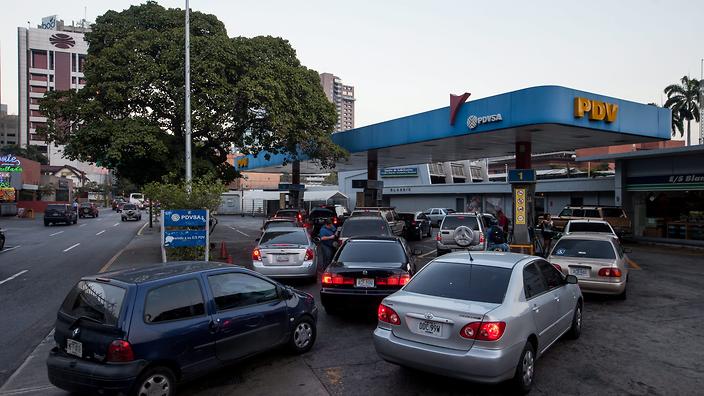-
Tips for becoming a good boxer - November 6, 2020
-
7 expert tips for making your hens night a memorable one - November 6, 2020
-
5 reasons to host your Christmas party on a cruise boat - November 6, 2020
-
What to do when you’re charged with a crime - November 6, 2020
-
Should you get one or multiple dogs? Here’s all you need to know - November 3, 2020
-
A Guide: How to Build Your Very Own Magic Mirror - February 14, 2019
-
Our Top Inspirational Baseball Stars - November 24, 2018
-
Five Tech Tools That Will Help You Turn Your Blog into a Business - November 24, 2018
-
How to Indulge on Vacation without Expanding Your Waist - November 9, 2018
-
5 Strategies for Businesses to Appeal to Today’s Increasingly Mobile-Crazed Customers - November 9, 2018
Venezuela hiking gas prices for the first time in 20 years
Prices will jump as much as 6,068 percent for 95 octane gasoline, or 1,300 percent of 91 octane starting Friday.
Advertisement
According to Latin American broadcaster Telesur, Maduro added that the state must “develop the Bolivarian economic agenda to improve the distributive system”, referring to the state-led economic program launched by his predecessor, the late President Hugo Chavez.
“The cost of gasoline is nearly nothing today”, Maduro said.
Maduro also announced that the strongest of the country’s official exchange rates, used for essential goods like food and medicine, would be changing from 6.30 bolivars to the USA dollar to 10 bolivars to the dollar.
The government will also eliminate an intermediate rate that last sold dollars for about 13 bolivars and improve an alternative “free-floating, complementary” market that trades around 203 bolivars per dollar.
He unveiled a series measures to help ease Venezuela’s economic crisis, including devaluing the currency.
“Cheap fuel was the only benefit we had left”, said Angel Pina, 41, at a gas station in Caracas.
State oil company Petroleos de Venezuela spends about $15 billion annually to keep gasoline prices low, according to estimates by Rafael Ramirez before ending his 10-year management of the outfit in 2014.
But making matters even more complicated, most Venezuelans exchange their bolivars for dollars on a black market.
Venezuela’s economy has been pushed to the brink by the collapse in the oil price, which accounts for about 95% of the country’s export revenues. “I ask that the people welcome and support this new change”.
Venezuela’s gas price increase comes as Maduro, who has an approval rating within the 20 percent range, fights for his political survival, reported the Associated Press.
Venezuelan socialist leader Nicolas Maduro has raised the cost of heavily subsidized gasoline, calling it a “necessary measure”.
The Maduro administration says it is looking for ways to work out distortions at home while aggressively pushing other oil countries to drive up oil prices.
Its economy is now in a severe recession as oil prices have fallen dramatically in the past two years.
The opposition’s two-time presidential candidate and most popular politician Henrique Capriles, the author of the anti-Maduro referendum initiative, believes the government would have to recognize the results of the vote, should they be favorable for the opposition.
Advertisement
In the larger scheme of things, things in Venezuela have not been great as its economy has been crushed by lower oil prices.





























